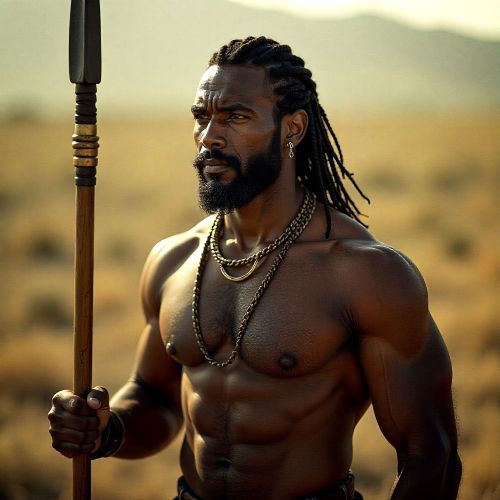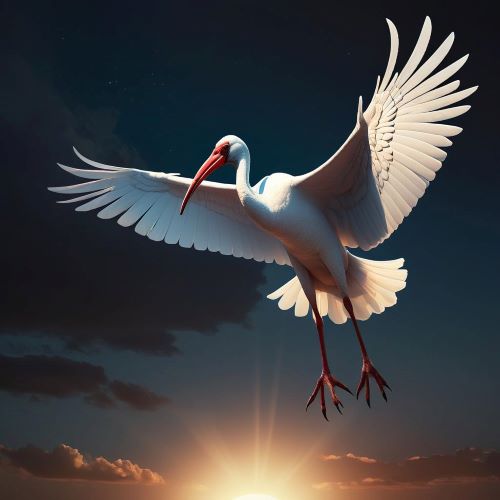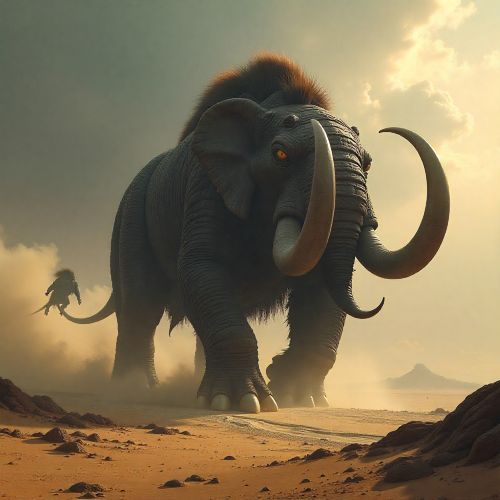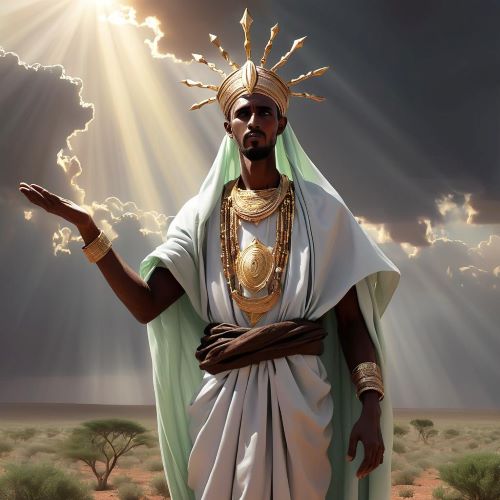Oromo & Somali Mythology
Oromo and Somali mythology, born from the vast landscapes of the Horn of Africa, reveals a sacred worldview in which creation, morality, and cosmic order are interwoven with the rhythms of nature and the ancestral past. The Oromo of Ethiopia and Kenya and the Somali of the coastal and desert regions share ancient Cushitic roots, reflected in their languages, cosmology, and reverence for divine balance. Their myths, preserved through oral poetry, chants, and ritual storytelling, speak of a universe created and sustained by the breath of a single eternal being — a living spirit whose presence can be felt in wind, rain, and word.
At the heart of Oromo mythology stands Waaq, the supreme sky god and creator of the universe. Waaq (also known as Waaq Gurraacha, meaning “the Black God,” symbolizing mystery and eternity) is the source of all life and moral order. He resides in the heavens but governs all creation through harmony and justice. According to Oromo tradition, Waaq created the world in perfect balance, establishing sacred laws known as Safuu, which define the moral relationship between humans, nature, and the divine. To break Safuu — to act without respect, moderation, or truth — is to disturb the cosmic order. Thus, Waaqism is less a system of worship and more a philosophy of right living, emphasizing peace, respect for elders, compassion for others, and ecological balance.
In Oromo creation stories, Waaq formed the first man and woman, giving them land, cattle, and wisdom. Rain, thunder, and lightning are seen as expressions of his presence — blessings when humanity lives righteously, but warnings when harmony is broken. The Oromo spiritual leaders, known as Qaalluu, act as intermediaries between Waaq and the people, maintaining the link through ritual, prayer, and song. The Odaa tree, under which councils and ceremonies are held, is sacred as a symbol of divine shelter and unity.
Among the Somali people, similar concepts echo through their mythology and early cosmology. The Somali sky god Eebe (Eebe or Waaq) shares origins with the Oromo deity, reflecting a shared Cushitic heritage. Somali oral traditions speak of Eebe as the giver of rain, justice, and life, whose breath fills all creation. The Somali worldview also honors spirits of place and ancestry, called rooxaan, who inhabit wells, rocks, and trees, ensuring fertility and protection. Myths of Arawelo, the legendary Somali queen who defied kings and reigned in wisdom and power, blend historical memory with divine myth — symbolizing justice, balance, and the feminine principle of authority.
Both the Oromo and Somali see rain and cattle as sacred blessings, symbols of divine favor and continuity. Ceremonies of gratitude, such as rain-invoking chants and feasts of milk, reaffirm the covenant between heaven and earth. Though many have since adopted Abrahamic faiths, traces of the ancient Waaq belief remain woven into daily language, proverbs, and cultural ethics — living testaments to a spirituality that predates borders and endures in every prayer for rain, every oath of truth, and every sunrise over the Horn of Africa.





